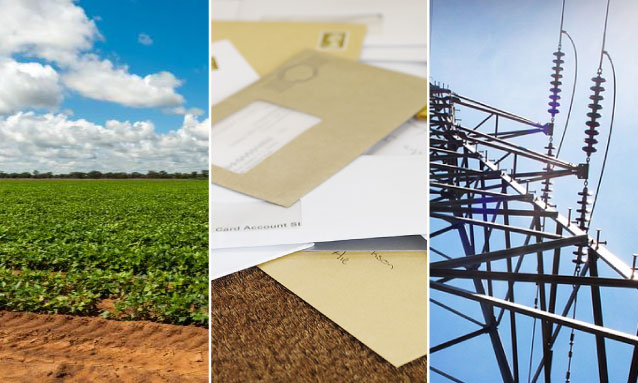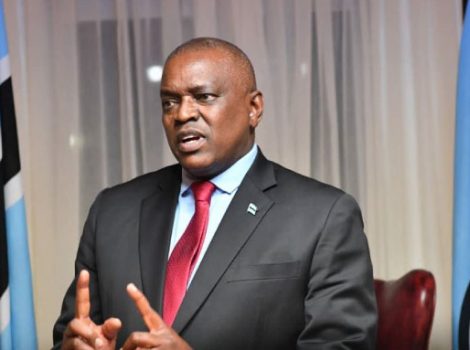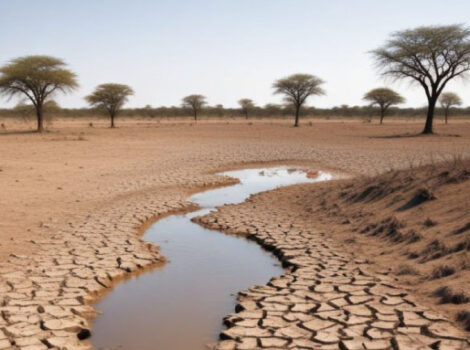
An economic slump, magnified by the downgrading of Botswana’s long-term local and foreign currency ratings, has made it imperative for the Government to diversify its revenue base and do away with financial commitments that are draining state coffers.
Obligations that continue to drain the public purse include some state-owned enterprises (SOEs) beset by poor financial performance. Botswana has over 40 SOEs. The Southern African country has suffered a major blow after the ratings agency, Moody’s, downgraded its long-term local and foreign currency ratings from A2 to A3.
“The downgrade to A3 reflects the deterioration in fiscal strength exacerbated by the shock induced by the Coronavirus pandemic,” Moody’s explained.
Analysts noted that this past year, Botswana’s fiscal buffers have been eroded, primarily due to a reduction in mineral revenue. This reflected an approximate 60% decline in the 2020/21 fiscal year and the accelerated reduction of the Government’s foreign exchange reserves in the Government Investment Account. Rand Merchant Bank (RMB) stated that the pandemic exposed structural limitations in Botswana’s growth profile, characterised by the large presence of the public sector and exposure to fluctuations in global demand for diamonds.
Africa’s 22nd largest economy is overly reliant on the special stone. Diamonds account for 15% of the Gross Domestic Product (GDP) and around 90% of exports.
Botswana’s economy contracted by 7,9% in 2020. Nonetheless, Moody’s expects the economy to rebound to 6,2% year-on-year, mainly driven by a recovery in the mining industry and gradual normalisation of domestic economic activity. RMB economists, Daniel Kavishe and Neville Mandimika, forecast a rebound of 4,8% in 2021.
“In the long term, Botswana will have to implement structural reforms, such as those outlined in the Economic Recovery and Transformation Plan (ERTP), capable of ensuring a more balanced growth profile, generating diverse revenue and rebuilding fiscal buffers,” they jointly stated.
The Botswana Stock Exchange (BSE) believes as part of the reforms to revitalise the economy, President Mokgweetsi Masisi’s government must do away with ineffective and unmaintainable financial commitments, including SOEs.
“The poor financial performance of some SOEs continues to deplete government coffers,” lamented Thapelo Tsheole, the BSE Chief Executive Officer.
Among the recent leading loss-makers are Botswana Agricultural Marketing Board, Botswana Post and Botswana Power Corporation. In his February budget speech, the former Finance Minister, Dr Thapelo Matsheka, hinted at the closure of perpetual loss-making parastatals, as bailing them out was becoming unsustainable.
“The prospect of the privatisation of certain parastatals is one we anticipate, with hopes that these entities would list on the Exchange as a way of corporatising and ensuring sustainable growth,” he added.
According to the BSE chief, empirical research has proven that SOE listings can provide the Government with a substantial revenue source. The impact could even be greater where listings were complemented with sector reforms that allow governments to reduce their financial support provided to those companies, Tsheole added.
Meanwhile, he noted the pessimism on the economic prospects.
“As this year unfolds, against the backdrop of the pandemic and the economic slump, economic indicators seem to suggest that things are due to worsen before they get better,” Tsheole said.
The Government has proposed a development budget of P14,75 billion (US$1,366 billion) for the fiscal year 2021/2022. This will be dedicated to restoring the economy through initiatives underpinned by the National Development Plan and the Economic Recovery and Transformation Plan.
Source: http://www.cajnewsafrica.com/2021/04/27/loss-making-parastatals-bog-downgraded-botswana/



